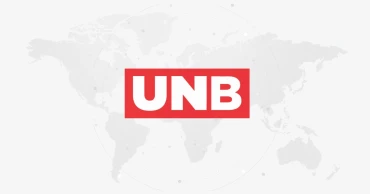gul factories
265 zarda, gul factories evading taxes
Many smokeless tobacco (SLT) manufacturers of Bangladesh have managed to slip away from the government's tax net; at least 265 of them are not paying taxes and 33% do not even have a valid trade licence.
Of the 483 SLT factories, 435 zarda – moist or dry chewing tobacco – and 48 gul – oral tobacco powder – factories in Bangladesh, only 218 pay taxes.
Also read:1.26 lakh people die in Bangladesh every year in diseases ...
Dr Nasiruddin Ahmed, former National Board of Revenue (NBR) chair, came up with the number Monday while presenting the findings of the study "Factors inhibiting smokeless tobacco tax payments by smokeless tobacco manufacturers operating outside the tax net in Bangladesh" at a webinar.
The study was conducted with assistance from the Campaign for Tobacco-Free Kids.
NBR jointly organised the programme with several anti-tobacco organisations, including National Heart Foundation, Dhaka Ahsania Mission, UBINIG, Voice and Progga.
In Bangladesh, SLT manufacturing and marketing mostly go unsupervised and unregulated. So, these products remain quite cheap, available and affordable.
Also, around 91% of SLT manufacturers produce their products manually. SLT products are primarily manufactured in small unmarked factories or houses. Their total monthly gross turnover is around Tk2.7 crore.
Also read:Dhaka Conference: Amend tobacco laws, impose specific taxes
Bringing the SLT producers under the tax net would increase the tax revenues from this sector considerably, the study said.
However, it also identifies the "informal" nature of SLT production as the main impediment in ensuring tax compliance in the sector.
Several other issues concerning the NBR, including lack of trained officials, the organisational structure of field offices and the outdated equipment and systems also add to this problem, the study said.
The absence of a fully digitalised and automated tax return processing system as well as the lack of a secure tracking and tracing system also facilitates tax evasion.
The study suggests introducing an automated tax return processing system, equipping and training the NBR officials, restructuring NBR field formations, introducing a secure tracking and tracing system (TTS), and authorising local government institutions to bring SLT manufacturers under local tax nets.
SLT products are severely detrimental to health and responsible for causing oral, oropharyngeal and other types of cancers.
However, around 20.6% – 2.20 crore – adults and school-going children aged 13-15 use smokeless tobacco in Bangladesh.
Despite such a high prevalence of tobacco usage, the SLT sector contributed Tk30.6 crore in revenue – 0.12% of the total revenue collected from tobacco – in the fiscal year 2019-20.
4 years ago

